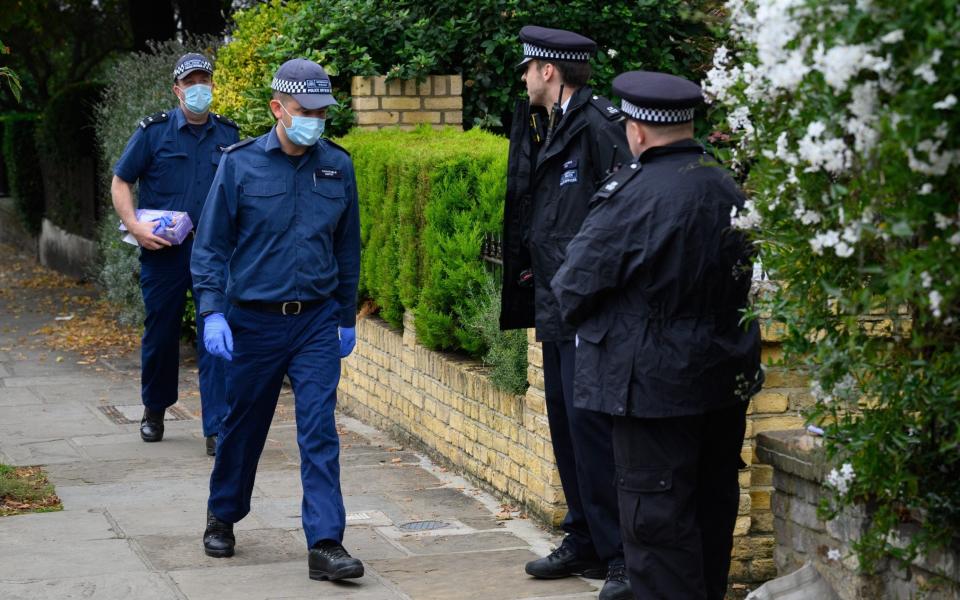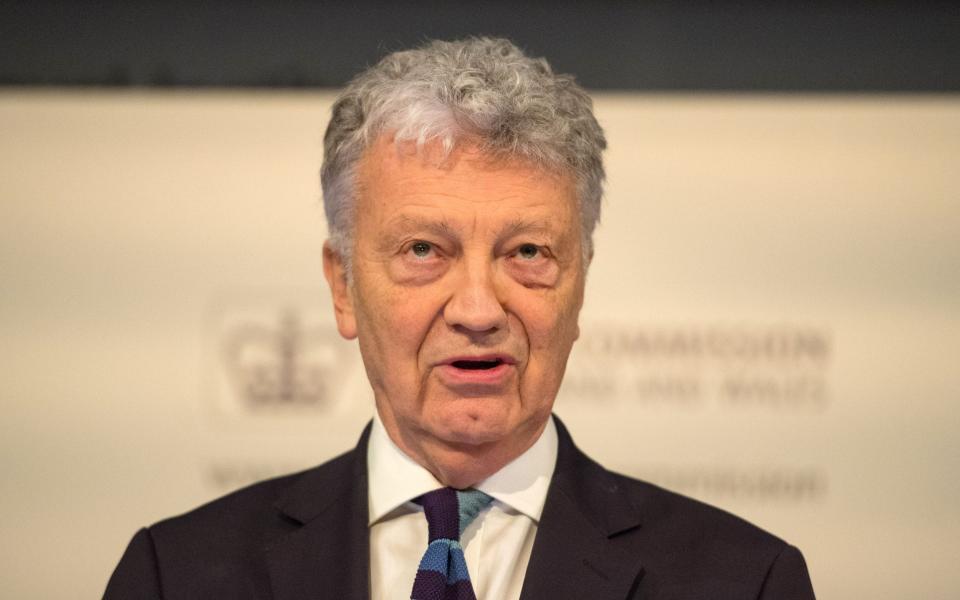Suspect in killing of Sir David Amess allegedly made Islamist declaration after attack

- Oops!Something went wrong.Please try again later.
The man arrested on suspicion of murdering Sir David Amess is understood to have made an alleged Islamist declaration in the aftermath of the attack.
The Telegraph has learned that the suspect was using his phone when armed police detained him in the minutes after the MP was attacked.
Counter-terrorism police are now investigating whether information was in the process of being uploaded to the internet.
On Tuesday, a government source said the incident had been categorised as terrorism because of an alleged declaration made by the suspect.
It is not clear whether the alleged declaration was made verbally or online.
Investigation hampered by lack of digital footprint
A source told The Telegraph that there had been a declaration, which was now being investigated to establish if the act was part of an Islamist cause.
Counter-terrorism police are continuing to question 25-year-old Ali Harbi Ali in relation to the stabbing of the Southend West MP to death at his regular Friday surgery last week.
But the investigation has been hampered by the lack of any obvious digital footprint for the suspect, with virtually no evidence of any online social media activity.

Priti Patel, the Home Secretary, has voiced concern over the use of anonymous social media accounts, leading to speculation that the suspect may have been operating in the digital shadows.
Security sources have said it is not thought Sir David was selected specifically, but was targeted simply because he was an MP.
It is now known the suspect booked an appointment with Sir David the previous week, telling his office he was moving into the area and wished to discuss healthcare issues.
He was subsequently granted an appointment during the three-hour surgery meeting.
But it is thought other MPs may have also been contacted before the suspect secured the slot with Sir David.
Growing concerns about effectiveness of Prevent
Meanwhile, it has emerged that Mr Ali spent time on the Channel counter-extremism programme in 2014, around the time he was completing his A-levels.
He was initially referred to Prevent by someone associated with his school and from there was put forward for the Channel scheme.
But he did not spend long on the course and was not considered enough of a threat to be flagged to MI5.
There are growing concerns about the effectiveness of Prevent, with critics claiming the focus has shifted too much from the threat posed by Islamic extremists.
A report out on Wednesday will warn that there is “fundamental mismatch” between the scale of the threat from Islamist extremism and apparent relative lack of attention paid to it by Prevent.
The report found that only 22 per cent of referrals to Prevent were for Islamist radicalisation, and just 30 per cent of those were taken on to Channel deradicalisation programmes.
By contrast, far-Right extremists made up 24 per cent of referrals and 43 per cent of those were offered Channel support, making them both more likely to be referred to Channel and taken up as cases.
However, Islamic terrorists accounted for more than 90 per cent of the 43,000 suspects on MI5’s watchlist and the overwhelming majority of recent terror convictions, offenders and killings.
Jonathan Hall, the independent reviewer of terrorist legislation, concluded in his annual report that “Islamist terrorism remains the principal threat in Great Britain”, responsible for the majority of terrorism convictions in 2019.
Last year, however, just 210 Islamist extremists were referred to Channel for deradicalisation, according to the report published by the Henry Jackson Society.
A government review of Prevent by William Shawcross, a former leading trustee of the society, is expected to recommend a major overhaul of programme, placing greater emphasis on protecting public security and securing three-year funding for schemes to deradicalise extremists.

Dr Rakib Ehsan, a research fellow at the Henry Jackson Society’s Centre on Radicalisation and Terrorism and Centre on Social and Political Risk, said the mismatch meant “there is all too real prospect of Islamist extremists who present a significant security risk, not being sufficiently monitored by the public authorities”.
His paper warned that: “The UK cannot afford to be paralysed by political correctness and tribal identity politics in the fight against Islamist extremism – a terror threat that concerns both Muslims and non-Muslims in Britain to similar degrees.
“The effectiveness of the UK’s counter-terrorism structures has once again been called into question following the killing of Sir David. The Prevent scheme’s central aim is to reduce the UK’s overall terror threat and maximise public safety. At the moment, it is failing to deliver on this front.”
Dr Alan Mendoza, director of the Henry Jackson Society, said: “The reality is the programme has struggled to cope with the increase in referrals to it over the years given increased extremism and the unremitting hostility to it by some leaders in the Muslim community and the political Left.
“What the murder of Sir David shows is that we need more Prevent going forwards, not less and we should be redoubling our efforts to strengthen the programme.”

